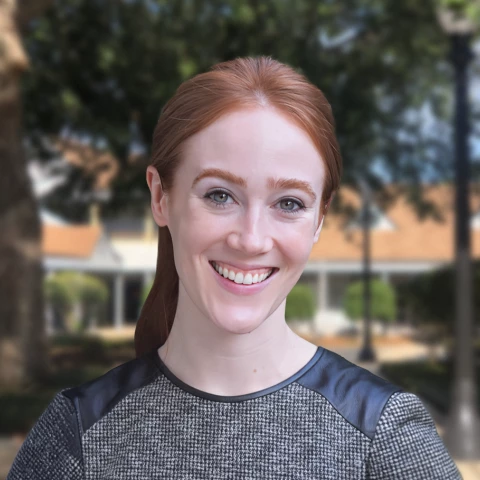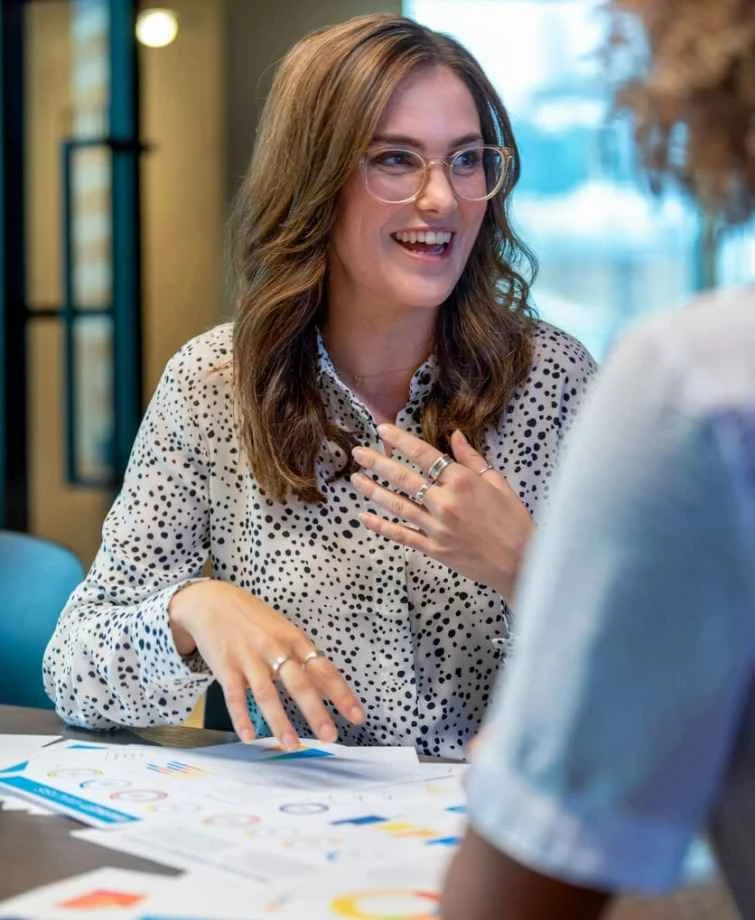Our legal system places an enormous burden on the laypeople it recruits as jurors. Despite a lack of expertise, they must evaluate the merit of each piece of evidence throughout trial, including complex technical information presented by expert witnesses. Unsurprisingly, jurors often struggle with expert testimony, and their appraisals are guided by factors that have little to do with the testimony’s content—one reason that outdated and unproven “junk sciences” continue to find traction in courtrooms across the country. Understanding these factors, and appreciating how jurors are processing what they hear, allows us to coax the most out of expert witnesses.
The Will and the Way to Evaluate Testimony
How jurors assess expert witness testimony can be traced back to basic information processing patterns. To critically evaluate any message, those on the receiving end must have both the will (motivation to engage with the information) and the way (ability to understand the information).
The former varies widely both between and within individuals. While most people are motivated to engage with messages of personal importance or relevance, some people are inherently more inclined to seek out cognitively demanding tasks (what psychological research has dubbed a high need for cognition).1 Jurors with a higher need for cognition are more likely to expend the required mental resources to critically engage with the concepts delivered by experts, as well as be more sensitive to variations in evidence quality and overall case strength.2,3
The question of ability, the way, presents a separate challenge. Even the most motivated jurors lack the specialized training and knowledge needed to make a truly independent assessment of experts’ opinions. Put simply, jurors cannot always sort the wheat from the chaff. They may assign undue weight to less valid types of evidence or conclusions built upon weaker foundations.4 As a result, their verdict decisions are susceptible to the influence of any “junk science” that evades the courts’ safeguards.
How “Bad” Science Enters the Courtroom
Under the Daubert standard, trial judges provide that primary safeguard. Serving as gatekeepers, judges gauge whether a particular expert’s testimony meets the criteria for admissibility. As part of this process, Daubert asks judges to consider whether the testimony is the product of sound scientific methodology. Invalid or otherwise irrelevant scientific evidence, in theory, fails the test and is ruled inadmissible. However, research suggests that trial judges are no more capable of differentiating between valid and invalid science than the lay jurors for whom they are supposed to be the first line of defense. 5,6
Jurors—and judges—have difficulty distinguishing “good” and “bad” science because they lack an understanding of what constitutes “good” science in the first place. Absent a basic familiarity with the relevant methodological and statistical concepts, they rely on the experts themselves both to present the scientific evidence and to adequately explain its meaning. Junk, submitted convincingly, can sneak right by.
Factors Influencing Expert Credibility
Worse, jurors can receive explicit guidance on how to critique the science yet remain unable to detect major threats to its legitimacy. One study presented mock jurors with information about various features that can affect a study’s validity (e.g., control groups or a double-blind research design) only to find that the jurors’ subsequent verdict decisions were not significantly affected by variations in the validity of the expert witness’ research.7 More concerningly, jurors do not always adjust their decisions even when experts admit to potential shortcomings in their own reasoning.8
Jurors instead search for other credibility clues. They take signals both from who the expert is and how the expert delivers the information, letting the content itself become secondary. An expert’s professional credentials, particularly their level of education (e.g., advanced degrees) and years of experience, become a proxy for their scientific credibility.9 Jurors may also rely on witness characteristics such as confidence and likability.10,11 Interestingly, research shows that jurors respond more positively to experts who project a medium level of confidence than a high level. Experts demonstrating the latter can be perceived as arrogant or more likely to overstate their conclusions.12
The Problem with Competing Experts
Although researchers have investigated how to better equip lay jurors to handle expert witness testimony, the problem has proven to be persistent. One method—hiring an expert to discredit the testimony of the opposition’s expert—has an intuitive appeal, but the evidence on the effectiveness of so-called “dueling experts” is mixed at best. Some studies have even suggested that the strategy can backfire. Hearing conflicting testimony from two equally qualified experts may encourage jurors to develop skepticism towards experts generally, rather than sensitizing them to flaws in the opposing expert’s methodology.13,14 The experts may effectively cancel each other out.
Research into this effect indicates that the second expert’s presence negatively affects jurors’ perception of the “general acceptance” of the science. Strong, contradictory opinions from experts who seem similarly qualified leave jurors with the impression that there is no expert consensus. The apparent lack of agreement in the field affects jurors’ beliefs about the reliability of the evidence, which in turn influences verdict decisions.15 If opposing counsel can locate one expert to testify in support of their theory of the case, it can undermine the impact of another expert whose opinions reflect the broader consensus.
Hearing two experts present different conclusions may also exacerbate jurors’ impressions that expert witnesses are “hired guns,” selling their testimony to the highest bidder with little regard for scientific integrity. Experts who tend to testify for only one side or for the same party across multiple cases amplify this impression, particularly if opposing counsel highlights their court history or hourly rate.
Conclusion
How jurors make sense of expert witness testimony can significantly impact a case’s outcome. If the jury is unwilling and/or unable to understand the information, or if they simply do not trust the witness presenting it, even the most compelling evidence falls flat. It is therefore crucial to appreciate the underlying psychology of jurors’ response to expert testimony when selecting and preparing witnesses.
While hard and fast rules are elusive, the literature offers some guidance on maximizing an expert’s effectiveness. First, attorneys should seek out highly credentialed experts who have firsthand experience not only with the subject area but with the specific case at hand. In a personal injury case, for instance, a doctor will be more credible to jurors if they have examined the plaintiff versus merely reviewing medical records. As for experts’ delivery, witness preparation sessions should emphasize presenting dense science in familiar terms without coming across as condescending. These sessions can also help experts feel more at ease on the stand, allowing them to project confidence at trial. In this manner, we can appeal to the factors that jurors weigh most highly, even in the face of an opponent’s less-than-legitimate science.
References
1 Cacioppo, J. T., & Petty, R. E. (1982). The need for cognition. Journal of Personality and Social Psychology, 42(1), 116–131. https://doi.org/10.1037/0022-3...
2 Bornstein, B. H. (2004). The impact of different types of expert scientific testimony on mock jurors' liability verdicts. Psychology, Crime & Law, 10(4), 429–446. https://doi.org/10.1080/106831...
3 Salerno, J. M., Bottoms, B. L., & Peter-Hagene, L. C. (2017). Individual versus group decision making: Jurors’ reliance on central and peripheral information to evaluate expert testimony. PloS one, 12(9), https://doi.org/10.1371/journa...
4 Kukucka, J., Hiley, A., & Kassin, S. M. (2020). Forensic Confirmation Bias: Do Jurors Discount Examiners Who Were Exposed to Task‐Irrelevant Information? Journal of Forensic Sciences, 65(6), 1978-1990. https://doi.org/10.1111/1556-4...
5 Chorn, J. A., & Kovera, M. B. (2019). Variations in reliability and validity do not influence judge, attorney, and mock juror decisions about psychological expert evidence. Law and Human Behavior, 43(6), 542–557. https://doi.org/10.1037/lhb000...
6 Rowland, P. (2023). Comparing judges versus jurors: Do they decide cases differently. National Law Review, 13(151).
7 McCauliff, B.D., & Kovera, M. B. (2003) Need for cognition and juror sensitivity to methodological flaws in psychological science. Unpublished Manuscript, Florida International University, Miami, FL.
8 McQuiston-Surrett, D., & Saks, M.J. (2009). The Testimony of Forensic Identification Science: What Expert Witnesses Say and What Factfinders Hear. Law & Human Behavior, 33, 436–453. https://doi.org/10.1007/s10979...
9 McCarthy Wilcox, A., & NicDaeid, N. (2018). Jurors' perceptions of forensic science expert witnesses: Experience, qualifications, testimony style and credibility. Forensic Science International, 291, 100–108. https://doi.org/10.1016/j.fors...
10 Brodsky, S.L., Neal, T.M.S., Cramer, R.J., & Ziemke, M.H. (2009). Credibility in the courtroom: How likeable should an expert witness be? Journal of the American Academy of Psychiatry and the Law, 37, 525-532.
11 Brodsky, S., Griffin, M., & Cramer, R. (2010). The Witness Credibility Scale: An outcome measure for expert witness research. Behavioral Sciences & the Law, 28(6), 892-907. https://doi.org/10.1002/bsl.91...
12 Cramer, R. J., Brodsky, S. L., & DeCoster, J. (2009). Expert witness confidence and juror personality: their impact on credibility and persuasion in the courtroom. The journal of the American Academy of Psychiatry and the Law, 37(1), 63–74.
13 Levett, L. M., & Kovera, M. B. (2009). Psychological mediators of the effects of opposing expert testimony on juror decisions. Psychology, Public Policy, and Law, 15(2), 124–148. https://doi.org/10.1037/a00163...
14 Levett, L. M., & Kovera, M. B. (2008). The effectiveness of opposing expert witnesses for educating jurors about unreliable expert evidence. Law and Human Behavior, 32(4), 363–374. https://doi.org/10.1007/s10979...
15 Scobie, C., Semmler, C., & Poreve M (2019). Considering forensic science: individual differences, opposing expert testimony and juror decision making. Psychology, Crime & Law, 25(1), 23-49. https://10.1080/1068316X.2018....
A version of this article was originally published in the Fall 2023 issue of the USLAW Magazine. Republished with permission.







